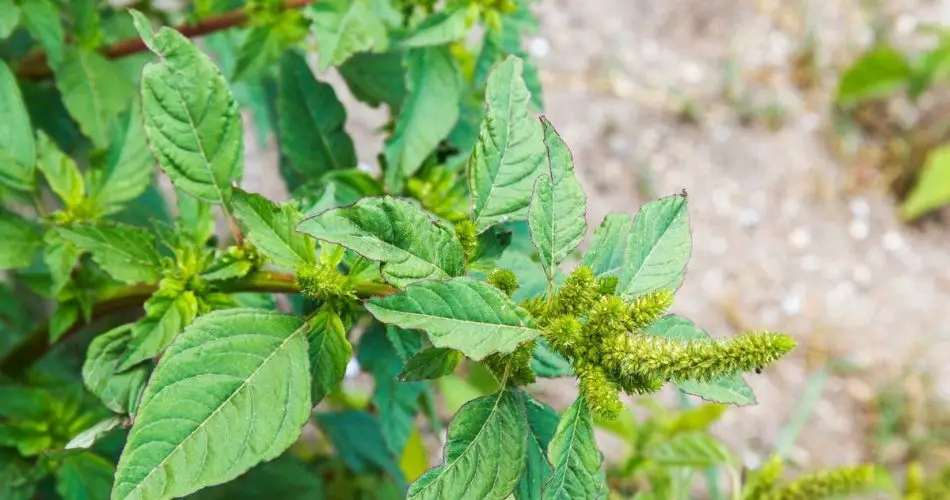Pigweed, also known as Amaranthus, is often viewed as an unwanted garden weed. However, for centuries, various cultures have recognized pigweed as a nutritious plant with numerous health benefits. Packed with essential vitamins, minerals, and antioxidants, pigweed is a versatile plant that can be consumed in different ways. In this article, we will explore 13 health benefits of pigweed and provide insights into how you can incorporate it into your daily life.
1. Rich in Nutrients
Pigweed is a nutritional powerhouse, containing a wealth of vitamins and minerals essential for maintaining good health. It is particularly rich in vitamins A, C, and K, which play crucial roles in immune function, skin health, and blood clotting. The plant also provides significant amounts of calcium, iron, potassium, and magnesium.
- How to Use: Pigweed leaves can be cooked like spinach or added to salads for a nutrient boost. The seeds can be ground into flour and used in baking.
2. Excellent Source of Protein
One of the standout features of pigweed is its high protein content. The plant’s seeds, in particular, are known for their protein-rich profile. Unlike many plant-based sources, pigweed contains all nine essential amino acids, making it a complete protein, which is vital for muscle repair and overall body function.
- How to Use: Use pigweed seeds in smoothies, sprinkle them over yogurt, or add them to soups and stews for a protein boost.
3. Supports Digestive Health
Pigweed is rich in dietary fiber, which promotes healthy digestion by adding bulk to stools and facilitating smoother bowel movements. Regular consumption of fiber can help prevent constipation, reduce the risk of gastrointestinal disorders, and support a healthy gut microbiome.
- How to Use: Incorporate pigweed leaves into soups, stews, or sauté them with garlic and olive oil to create a fiber-rich side dish.
4. Helps Manage Anemia
Due to its high iron content, pigweed is an excellent natural remedy for combating anemia. Iron is essential for the production of hemoglobin, the protein in red blood cells that carries oxygen throughout the body. Regular consumption of iron-rich foods like pigweed can help prevent and manage anemia, especially in people with iron deficiencies.
- How to Use: Cook pigweed leaves with a source of vitamin C (such as lemon or tomatoes) to enhance iron absorption in the body.
5. Promotes Heart Health
Pigweed is rich in potassium and magnesium, two minerals that play key roles in regulating blood pressure and promoting cardiovascular health. Potassium helps balance sodium levels in the body, reducing the risk of hypertension, while magnesium aids in maintaining a healthy heart rhythm.
- How to Use: Add pigweed leaves to green smoothies or enjoy them in salads to incorporate heart-healthy nutrients into your diet.
6. Supports Bone Health
With its high calcium content, pigweed can contribute to stronger bones and help prevent conditions like osteoporosis. Calcium is vital for maintaining bone density and strength, particularly as we age.
- How to Use: Use pigweed leaves in soups, stews, or stir-fries as a calcium-rich vegetable, or blend them into smoothies for an added nutritional boost.
7. Aids in Weight Management
Pigweed is low in calories but rich in nutrients and fiber, making it a great addition to a weight management plan. The fiber in pigweed helps you feel full for longer periods, reducing the urge to snack between meals, while the nutrient density ensures you meet your nutritional needs without consuming excess calories.
- How to Use: Use pigweed leaves as a base for salads or sauté them as a low-calorie side dish. The seeds can also be used to make a protein-packed porridge.
8. Contains Antioxidants
Pigweed is loaded with antioxidants, including flavonoids and carotenoids, which help protect the body from oxidative stress caused by free radicals. Antioxidants play a crucial role in preventing chronic diseases such as cancer, heart disease, and neurodegenerative conditions.
- How to Use: Consume pigweed in its raw form in salads or lightly cook it to preserve its antioxidant properties. Pigweed tea is another excellent way to enjoy its benefits.
9. Boosts Immune Function
Pigweed is rich in vitamin C, which is a potent antioxidant known for boosting immune function. Vitamin C supports the production of white blood cells, which are essential for fighting infections and protecting the body against illness.
- How to Use: Add raw pigweed leaves to salads or smoothies for a fresh boost of vitamin C. You can also steep pigweed in hot water to make an immune-boosting herbal tea.
10. Helps Detoxify the Body
The high fiber and antioxidant content in pigweed makes it an excellent natural detoxifier. It helps flush toxins from the body, supports liver function, and promotes healthy digestion. Regular consumption of pigweed can help keep your system clean and functioning optimally.
- How to Use: Drink pigweed tea or include pigweed leaves in green detox juices to promote healthy detoxification processes in the body.
11. Reduces Inflammation
Pigweed has anti-inflammatory properties that can help reduce inflammation in the body. Chronic inflammation is linked to numerous health problems, including arthritis, cardiovascular disease, and diabetes. The antioxidants and flavonoids in pigweed contribute to its ability to reduce inflammation.
- How to Use: Enjoy pigweed leaves in soups, stews, or teas to help reduce inflammation naturally.
12. Promotes Healthy Skin
The antioxidants and vitamins in pigweed, particularly vitamin A, promote healthy skin by protecting it from damage caused by environmental factors like UV rays and pollution. Vitamin A also helps maintain skin cell turnover, keeping your skin looking youthful and radiant.
- How to Use: Pigweed leaves can be applied topically as a paste to treat minor skin irritations or consumed internally to promote overall skin health.
13. Supports Eye Health
Pigweed contains beta-carotene, a precursor to vitamin A, which is essential for maintaining healthy vision. Regular consumption of foods rich in beta-carotene can help prevent vision problems, including night blindness and age-related macular degeneration.
- How to Use: Add pigweed leaves to your daily diet in smoothies, soups, or salads to support eye health and protect your vision.
How to Incorporate Pigweed Into Your Diet
Now that you know the numerous health benefits of pigweed, here’s how you can use it in your daily routine:
1. Pigweed Tea
- Ingredients: Fresh or dried pigweed leaves, water.
- Boil the leaves in water for 5-10 minutes.
- Strain the leaves and enjoy the tea as a refreshing beverage. You can add honey or lemon for flavor.
2. Pigweed Salad
- Use fresh pigweed leaves as the base for your salad. Combine them with other vegetables like tomatoes, cucumbers, and avocados.
- Dress with olive oil, lemon juice, and a pinch of salt for a nutrient-rich salad.
3. Pigweed Stir-Fry
- Sauté pigweed leaves with garlic, onions, and olive oil. Add salt and pepper to taste.
- Serve as a side dish with rice or protein for a wholesome, nutrient-packed meal.
4. Pigweed Seed Porridge
- Toast pigweed seeds and grind them into a flour.
- Use the flour to make porridge by cooking it with milk or water, similar to oatmeal. Add honey, nuts, or fruits for added flavor and nutrition.
5. Pigweed Smoothie
- Blend fresh pigweed leaves with fruits like bananas, apples, or berries, and a liquid base such as almond milk or water.
- Enjoy a nutrient-dense smoothie packed with vitamins and minerals.



